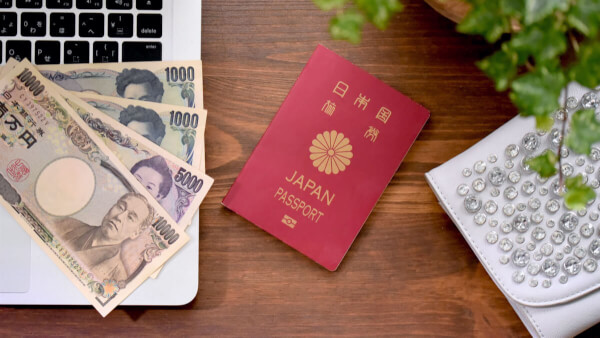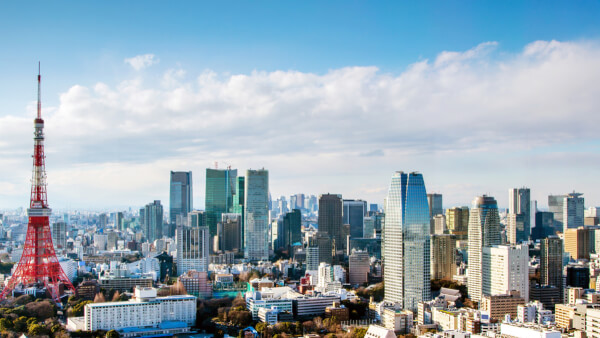How to move to Japan: step by step guide
Moving? Explore our blog for key insights on managing expenses, currency, and more adjustments for a successful move.

Japan has only a very small Christian population, so Christmas wasn’t traditionally a big festival. However, over the past few decades, it’s become more and more common to celebrate Christmas in a uniquely Japanese way. Although Christmas isn’t a public holiday, many workplaces and schools close, and families celebrate it together. Whereas you might mark the occasion with gingerbread cookies or roasted goose in Europe or the USA, in Japan you’re far more likely to dig into a bucket of KFC and a strawberry sponge cake on Christmas Day.
Intrigued? Here’s everything you need to know about Christmas in Japan.
Christmas falls in the middle of several other holidays in Japan, in what’s an inevitably busy season. It’s celebrated by many families and kids especially are fond of it, but Christmas in Japan is certainly quite unique.
Christmas in Japan is considered a time of good cheer, but the religious significance of the day isn’t really considered important. As a result, the traditions adopted in Japan are quite different than elsewhere. Like much of the rest of the world, Christmas is considered a special time for kids who have parties with their friends and receive gifts and treats.
Many cities will be decorated with lights and trees through December and it’s becoming increasingly common to see Christmas Markets, like you might find in Europe. Shopping malls are decorated and special Christmas-themed products, gifts, and cards are all available.
The 23rd of December is a public holiday in Japan for the Emperor’s birthday, so schools will close and take a short break through to the New Year. Christmas Eve is treated something like Valentine’s Day, with couples giving each other gifts and going out to look at the Christmas lights which are displayed in the centre of towns and cities.
Christmas Day might be a normal working day for some, but those who are off will spend time with their family and have a fried chicken dinner together. Yes, really. More on that in a second.
New Year is the more traditionally important time in Japan. It’s the time when families come together to share a special meal. The New Year break is celebrated over 5 days, running from December 31st to January 4th.
The traditional Christmas dinner in Japan is - as odd as it sounds - KFC. Families will order buckets of fried chicken to eat together and it’s the busiest time of year by far at KFC stores. They have extra staff and accept orders in advance to be able to deal with the demand. As well as the regular options which are available all year round, there are lots of premium packages available over Christmas. You can get a pack with everything you need for Christmas, including food, wine and cake. All this is thanks to the first ever KFC manager in Japan, who started promoting ‘Kentucky for Christmas’ in the 1970s. With no Christmas tradition in existence, it was heartily embraced, and now an entire generation considers it completely normal to have your Christmas dinner from a fast food chain.
Aside from chicken, there’s a Japanese tradition of Christmas cake - but not a fruitcake as you might find elsewhere over the winter. Instead, the usual cake is a sponge cake served with cream and strawberries.
Gift-giving has certainly become popular over the Christmas period in Japan. サンタさん (Santa San or Mr. Santa) brings gifts and can be found in shopping malls and kids’ parties throughout Japan.
Although couples usually give each other gifts at Christmas, they’re unlikely to give presents to anyone else. That’s because お歳暮 (Oseibo) is the tradition of giving gifts, usually at New Year, so people often hold off a few days and give their gifts then.
Japan is certainly not cheap and so the spending on gifts for Christmas and the New Year is pretty high. With several celebrations coming close together, it’s an expensive season. If you’re an expat in Japan, you might have to send money from Japan to the USA, for gifts or to pay your way during the festive period.
If you do need to move your money internationally, don’t forget that banks often don’t offer the best deal. Even though many banks might advertise their international transfers as free or cheap, they often actually add a markup to the exchange rate. It’s how they make a profit. The full costs associated with the transfer aren’t always clearly set out, leaving you exposed to hidden fees.
Instead, you can ditch your bank and use a specialist service like Wise. Wise guarantees that they’ll use the real exchange rate - the same one you find on Google. With no hidden fees and only a small transparent charge, you can be sure you’re not being ripped off.
Another option, if you often have to move money internationally, is a Wise borderless multi-currency account. A borderless account lets you hold cash in several different currencies at the same time, including Japanese Yen. You can make and receive payments using the currencies you hold, or just exchange your funds using the real exchange rate whenever it suits you.
See for yourself if you can get a better deal with Wise.
The Christmas calendar in Japan is driven somewhat by retailers as it’s a festival with more of a commercial feel than any religious significance. Stores will decorate and start to stock Christmas products in December or earlier.
Important festive dates for Japan:
| Japanese Christmas Holidays | Date |
|---|---|
| The Emperor’s birthday | 23rd December (Public Holiday) |
| クリスマス・イブ (Christmas Eve) | 24th December |
| クリスマス (Christmas) | 25th December |
| 大晦日 Ōmisoka (New Year’s Eve) | 31st December |
| 元日 Ganjitsu** (New Year’s Day) | 1st January (Public Holiday) |
Many western expats living in Japan find Christmas there somewhat bewildering. The range of traditional - and not so traditional - celebrations and customs makes it a colourful and interesting season, but it’s certainly different to Christmas in the USA, Europe or Australia. Get involved, and you’re sure to have a great time.
*Please see terms of use and product availability for your region or visit Wise fees and pricing for the most up to date pricing and fee information.
This publication is provided for general information purposes and does not constitute legal, tax or other professional advice from Wise Payments Limited or its subsidiaries and its affiliates, and it is not intended as a substitute for obtaining advice from a financial advisor or any other professional.
We make no representations, warranties or guarantees, whether expressed or implied, that the content in the publication is accurate, complete or up to date.

Moving? Explore our blog for key insights on managing expenses, currency, and more adjustments for a successful move.

Wondering if you're eligible for Japanese citizenship? Find everything you need to know in this handy guide.

Americans love Japan. They love the unique culture, cherry blossoms, the never ending nightlife of Tokyo and of course, sushi. Japanese culture fascinates...

Whether you’re an expat already, looking for a second home for family vacations, or want a smart investment, buying real estate in Japan can be a good move....

Japan is a country with a rich history and growing economy. In certain industries, like the tech sector, booms are starting to happen. Japan is quickly...

Getting around Japan’s urban metropolises is notoriously easy thanks to one of the world’s best and most efficient public transportation systems. Outside of...